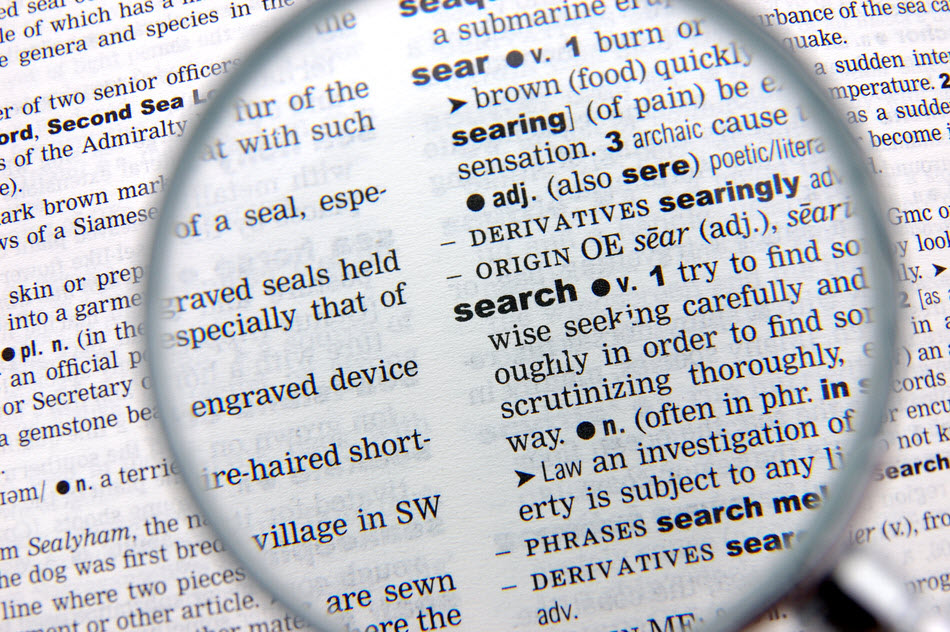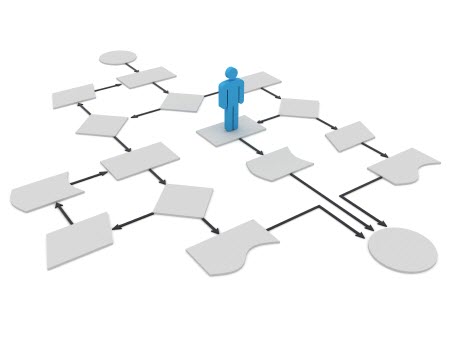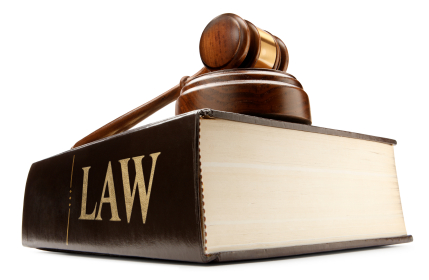Law Firm Outsourcing of eDiscovery
Learn about how law firms view outsourcing eDiscovery tasks like collection, processing, hosting and reviewing data to technology oriented vendors. Some firms want to own the EDRM model. Others want to outsource. And others consider eDiscovery a distraction to the practice of law so they ignore it.
Read MoreOver Processing of ESI and The Microsoft Letter – Part 2
This is part 2 of a 2 part series on over processing of ESI and the Microsoft letter. For this show, we added Tom Gricks, head of the predictive coding department at Schnader, Harrison, Segal & Lewis. We go beyond case law and try to use common sense to discuss if there are solutions to this problem. The other solution might be to continue the status quo and wait for new federal rules to try and bail us out.
Read MorePredictive Coding Gets a Glossary
Learn about the recent publication by Dr. Maura Grossman and Dr. Gordon Cormack entitled The Grossman-Cormack Glossary of Technology-Assisted Review published in Volume 7 Issue 1 of the Federal Courts Law Review in 2013. Joining us on this show are the Honorable John M. Facciola from the District of Columbia who wrote the foreword to the Glossary and Maura R. Grossman, Counsel at Wachtell Lipton, Rosen & Katz and and Dr. Gordon V. Cormack Professor from the University of Waterloo in Waterloo, Ontario.
Read MoreOver Processing of ESI and The Microsoft Letter – Part 1
On today’s show, we do part 1 of a 2 part series on the problems of over collection and the challenges this presents to corporations. We’ll discuss the incredible analysis that Microsoft put together in preparation for a meeting in Dallas for the Rules Subcommittee to discuss detailed metrics on why the Federal Rules on E-Discovery need more guidance on the obligations companies should adhere to in order to make them proportionate to the case at hand.
Read MoreTaxation of Electronic Discovery Costs, Recovering Processing Fees
This podcast features a discussion on how to recoup eDiscovery costs, with Karl Schieneman and Mark Austrian.
Read MoreThe Role of Litigation Support in E-Discovery
This show is very helpful for law firms and lawyers who are considering starting a litigation support department. It also provides insights into the fact that there is no one right way to run or staff a litigation support department. What is clear is litigation support can provide invaluable support for lawyers who are often challenged by the task of working effectively with technology.
Read MoreOur First Processing of ESI Show With Industry Processing Pioneers
Learn about the role processing plays in the analysis of ESI for E-Discovery. This is a really unsexy topic which few people want to think about except for the people whose hands it falls on to complete this important task. To those who are more involved, it is a trap for the unwary which is often decided based on price without thought to the implications that bad processing can have for your case.
Read MoreBuilding E-Discovery Work Flow
The topic for discussion in this podcast is how to create an E-Discovery process. Individual components will be discussed as well as the challenges of building process in the middle of a case.
Read MoreThe Status of Meta Data Case Law
Meta Data is essentially the finger prints which all electronic records have. Who created the file, the date it was created, changes to the records, are just a few examples of Meta Data. Often times, Meta Data itself can be the smoking gun in a lawsuit when retrieved in a defensible manner and examined properly.
Read MoreThe Top 10 Ways to Reduce Costs of Electronic Discovery
Listen to Kirkpatrick & Lockhart Gates attorney David Cohen, discuss 10 ways companies can reduce the costs of electronic discovery. Mr. Cohen is a partner in K&L Gates where he co-chairs the firm’s e-Discovery Analysis & Technology (e-DAT) Group. Mr. Cohen has over 25 years of commercial litigation experience in a variety of subject matters. David Cohen is a frequent national speaker on electronic discovery, using technology in litigation and electronic records management. He has also authored numerous legal publications.
Read MoreBeyond Key Word Searching in Electronic Discovery
http://live-esibytes-podcasts.pantheonsite.io/wp-content/uploads/AudioFiles/Beyond%20Key%20Word%20Searching%20in%20Electronic%20Discovery%20With%20Jason%20R.%20Baron.mp3Podcast: Play in new window | Download Listen to Jason R. Baron, the National Archives Director of Litigation give his personal views on better search and retrieval methods. Jason will point out the flaws in key word searching. Jason has been an active member of the Sedona Conference and he is a frequent speaker and writer on this topic. Professionally, Jason Baron has served as the National Archives’ Director of Litigation since May, 2000. In this position he is responsible for overseeing all litigation-related activities confronting the National Archives, including complex Federal court litigation involving access to Federal and Presidential records in the National Archives’ custody. In addition, Jason Baron is the National Archives’ representative to The Sedona Conference, where he is a member of the Steering Committee for Working Group 1 on Electronic Document Retention and Production, and serves as Editor-in-Chief of The Sedona Conference Best Practices Commentary on the Use of Search and Information Retrieval in E-Discovery. Mr. Baron is also a founding coordinator of the TREC Legal Track, an international research project organized through the National Institute of Standards and Technology to evaluate search protocols used in e-discovery. In this show we candidly address some of the issues facing search and retrieval, lawyers misperceptions on how effective key word searching is, some of the ground breaking studies on search and retreival such as the Blair & Maron study in 1985, why many current search and retreival processes do not scale and are so expensive, the work Jason Baron has done coordinating current studies on search and retrieval with TREC, and the overall challenges with search and retrieval. [DDET Click here to read the transcript] Karl Schieneman-Interviewer Jason R. Baron-Guest K: Hello everyone. Welcome to another addition of ESI Bytes. This is of course, a free podcast for electronic discovery where we try to offer the national content that appears in conferences around the country with national speakers that a price everyone can afford – free, and at a time when a topic might mean something to you. Today I’m real pleased with the show. We’re doing a show on search and retrieval with Jason Baron. Jason has served as the National Archives Director of Litigation since May of 2000. In this position, he’s responsible for overseeing all litigation activities confronting the National Archives including complex federal court litigation involving access to federal presidential records in the national archives’ custody. He also serves as NARA’s representative for The Sedona Conference (as many of the past speakers have been). Jason’s very involved with Sedona. He’s a member of the steering committee for Working Group One on electronic document retention and reduction. He serves as the Editor-in-Chief of the Sedona Conference’s Best Practices commentary on the use of search and information retrieval in e-discovery. He’s also the founding coordinator of Legal TREC – an international research project organized for the National Institute of Standards and Technology to evaluate search protocols used in e-discovery. If you GOOGLE Jason on “search...
Read MoreSearch and Retrieval Tips from the Bench
In this episode we talk about the evolution of search and retrieval from the 10,000 foot perspective, the importance of documenting what you do, how experimenting plays a role in search and retrieval, how common law supports changing the model for search and retrieval and some of the flaws in the current search and retrieval model.
Read MoreElectronic Discovery in Everyday Cases
In this podcast, we break down everyday cases where E-Discovery occurs, offer tips on saving money, how to figure out what the use of experts in a case will cost, tips on preserving evidence – even if you aren’t sure you will use ESI, litigation hold measures for smaller cases, the format in which to provide evidence to an attorney for review, advice for selection of a good EDD vendor for smaller cases, the pitfalls of using an internal IT department for E-Discovery tasks, the importance of working with opposing counsel in smaller cases to be more effective and really save money, and where most attorneys mess up smaller electronic discovery cases.
Read MoreEvaluating Search and Retrieval Tools in Electronic Discovery
This show will generally discuss the different types of search tools that are out there and why they all operate differently. We will discuss some fairly granular issues which the unwary might not notice when relying on a search engine to find everything. Topics we will discuss include the differences between search engines, how search engines operate, the role stop words play within search engines, to what extent hiring search experts is required, strategies for deduplicating documents, how to store data in your search engine, wading through misspelled words, variants and synonyms, the issue of saving accurate time zone metadata in ESI, different quality control steps for review, how to evaluate different search engines, and where these two experts believe the field of search will be heading in the next few years.
Read More


















